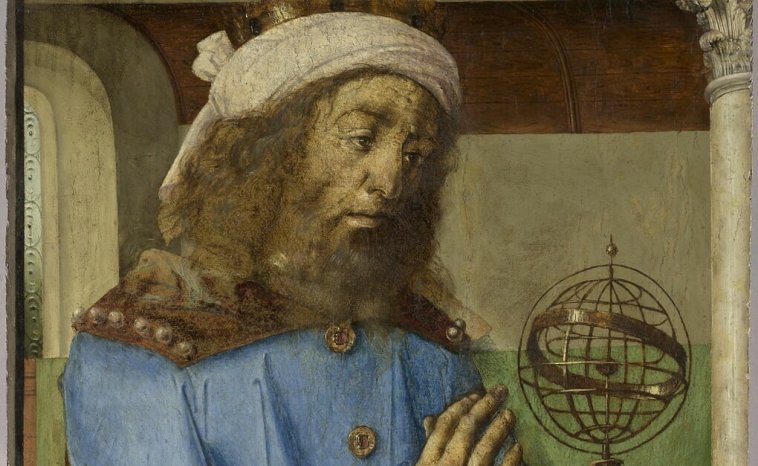Famous Astronomers Throughout History

Dive into the fascinating world of famous astronomers! Learn about their discoveries and how they changed our view of the cosmos throughout history.
Astronomy has been a source of fascination for humans for millennia. From ancient civilisations gazing at the stars to modern scientists using advanced technology, astronomers have played a crucial role in expanding our knowledge of the cosmos. But who are the heroes of this endless quest? In this article, we’ll discover famous astronomers throughout history who have significantly impacted our understanding of the universe.
Famous Astronomers and Their Timeless Contributions
Astronomy can trace its roots back to ancient times when early humans first looked up and wondered about the stars. These early astronomers laid the foundational work that future scientists would build upon.
Ptolemy
Claudius Ptolemy was an Egyptian-Greek thinker from the 2nd century AD. A polymath, his work in astronomy influenced scientific thought for over a millennium. His geocentric model, documented in the “Almagest”, suggested that the Earth was at the centre of the universe, a view that held sway until the Renaissance.
Despite being eventually debunked, Ptolemy’s models were incredibly detailed, providing a framework for future astronomers. Beyond astronomy, Ptolemy’s work also included notable contributions to geography and optics.
Nicolaus Copernicus
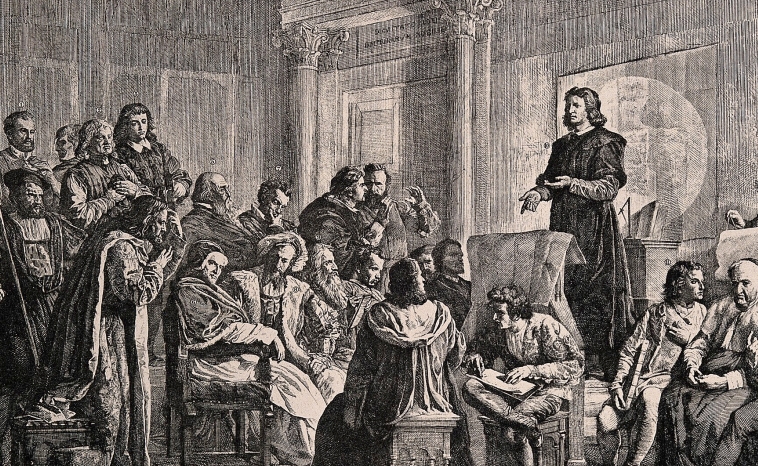
Credit: See page for author, CC BY 4.0, via Wikimedia Commons
Credit: See page for author, CC BY 4.0, via Wikimedia CommonsThe father of modern astronomy, Copernicus revolutionised our understanding of the cosmos. His heliocentric model placed the Sun at the centre of the universe – a groundbreaking – and even heretical – view at the time. His seminal work, “De revolutionibus orbium coelestium”, dismantled many long-held geocentric views.
As the name suggests, Copernicus sparked the Copernican Revolution. This was a vital moment that led to modern astronomical science as we know it today.
Galileo Galilei
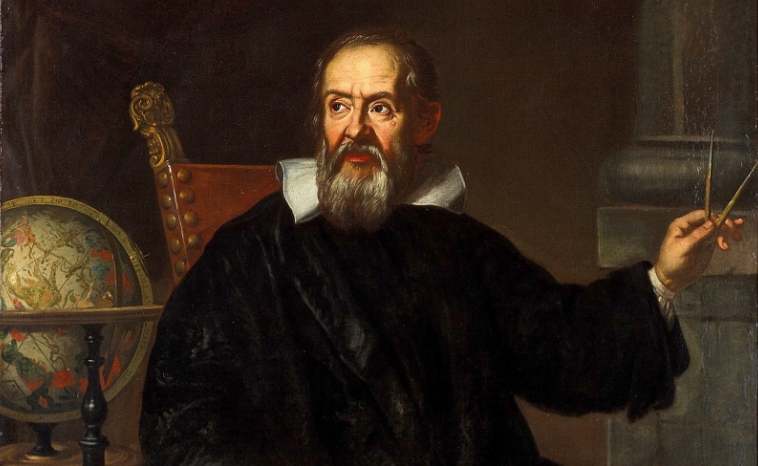
Credit: After Justus Sustermans, CC BY 4.0, via Wikimedia Commons
Credit: After Justus Sustermans, CC BY 4.0, via Wikimedia CommonsOften hailed as the “father of observational astronomy”, Galileo was among the first to use a telescope to study the heavens. His discoveries, including the moons of Jupiter and the phases of Venus, gave us tangible evidence for the Copernican model.
Galileo’s support for heliocentrism laid the groundwork for future astronomical breakthroughs. However, these radical views came at a cost. He found himself on the wrong side of Pope Paul III’s Roman Inquisition and spent his later years under house arrest.
Edwin Hubble
With a talent for athletics and a background in law, Edwin Hubble had several career paths open to him. But thankfully, he stuck with astronomy! His work in the early 20th century dramatically changed our view of the universe. He discovered that galaxies are moving away from us, leading to the theory of an expanding universe. As a result, his discoveries set the stage for the Big Bang Theory.
Today, the Hubble Space Telescope, named in his honour, continues to give us invaluable data.
Carl Sagan
Carl Sagan was an influential astronomer, astrobiologist, and science communicator who made complex scientific concepts accessible to the general public. His work on the Voyager Golden Records and his television series “Cosmos” inspired millions to look up at the stars.
Sagan’s natural ability to communicate complex scientific principles introduced astronomy to millions of people, inspiring a generation of future astronomers.
Vera Rubin
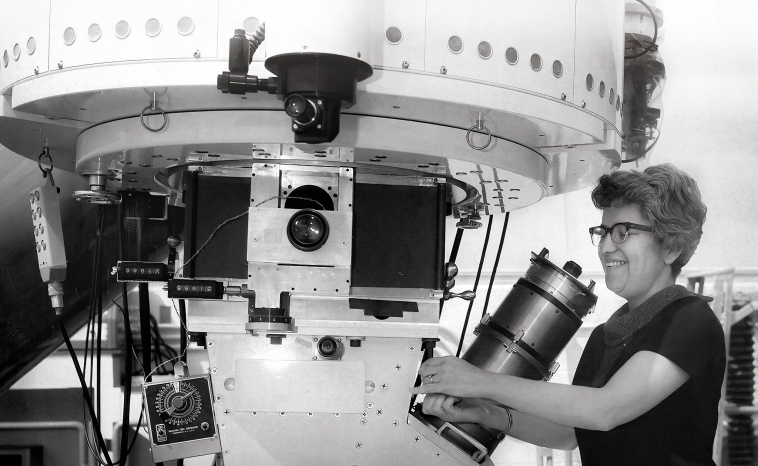
Credit: KPNO/NOIRLab/NSF/AURA, CC BY 4.0, via Wikimedia Commons
Credit: KPNO/NOIRLab/NSF/AURA, CC BY 4.0, via Wikimedia CommonsVera Rubin’s pioneering work on galaxy rotation rates provided some of the first evidence for the existence of dark matter. Her research challenged existing theories and opened up new avenues of inquiry in cosmology.
One of the few women in her field during her time, Rubin made huge strides towards breaking down barriers and shattering glass ceilings. What’s more, her discoveries had profound implications for our understanding of the universe’s composition and structure.
Isaac Newton
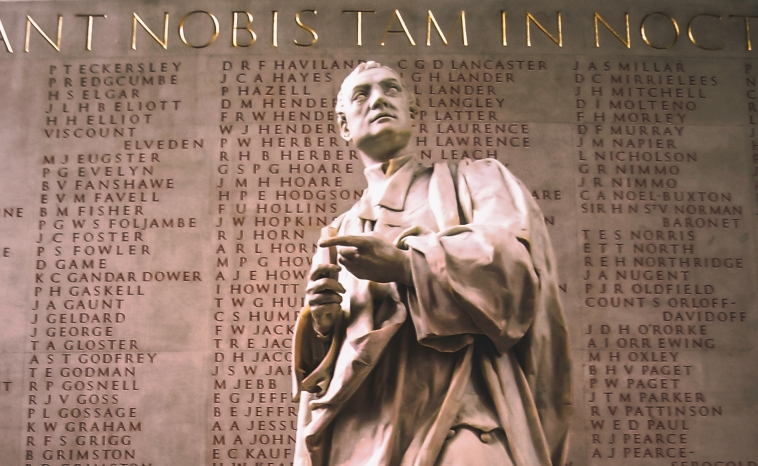
Famous for his law of universal gravitation, Sir Isaac Newton’s work in mathematics and physics changed how we understand the universe. His book “Principia Mathematica” laid the groundwork for many classical mechanics.
Far from just someone who watched an apple fall to the fall, Newton was a man of many interests. He dabbled in alchemy and biblical chronology. But it’s his laws of motion and gravity that really cemented his place in history, fundamentally altering our understanding of physics and astronomy.
Albert Einstein
Albert Einstein’s theory of general relativity forever altered our conception of gravity, showing that it is a curvature of spacetime caused by mass. As a result, his work had profound implications for cosmology and black hole physics.
Without Einstein’s theories, our understanding of the large-scale structure of the universe would be far behind where we are today.
Johannes Kepler
As keen on astrology as he was on astronomy, Johannes Kepler made huge strides in celestial mechanics and orbital dynamics. His laws of planetary motion describe how planets orbit the sun, giving further support to the Copernican model.
A mathematics teacher, Kepler also made important contributions to the field of optics. In fact, he improved on the telescope designs of Galileo and invented his own form of refractive telescope, the Keplerian telescope.
Stephen Hawking
If the general public knows just one 20th Century astronomer, it’s almost certainly Stephen Hawking. A former Lucasian Professor of Mathematics at Cambridge University, the same post held by one Sir Isaac Newton, Hawking might just be the closest thing to a celebrity that the astronomy world has ever known. But don’t think for a second that his fame took anything away from his contributions.
Hawking’s work has had a lasting impact on theoretical physics. Indeed, his contributions on black holes and the Big Bang are nothing short of monumental. But just as important is his literary output. Books like “A Brief History of Time” introduced complex scientific ideas to a general audience, presenting them in an accessible way.
Henrietta Swan Leavitt
Henrietta Swan Leavitt worked as a “human computer” at Harvard University. The idea of this role was to simply measure photographic plates to calculate the brightness and position of stars. But Leavitt took things much further than that!
During her work, she noticed the relationship between the luminosity and the period of Cepheid variable stars. Critically, this understanding allowed astronomers to effectively measure huge distances to far-off galaxies for the first time. Thanks to Leavitt’s discovery, today known as Leavitt’s Law, we can now grasp the full scale of the universe.
Final Thoughts on the Impact of Famous Astronomers Throughout History
From ancient stargazers to modern scientists, famous astronomers have continually challenged our understanding of the universe, opening our eyes to its wonders. But beyond expanding our understanding, these brilliant minds have also inspired generations to look up at the night sky with curiosity and wonder.

And if you want to follow in the footsteps of famous astronomers and learn more about the universe for yourself, there’s no better place to start than with the OSR Star Finder App. Once you’ve downloaded the app to your iOS or Android device, simply aim your phone towards the sky and get ready to learn more about the stars, planets, and constellations in our cosmic neighbourhood!

